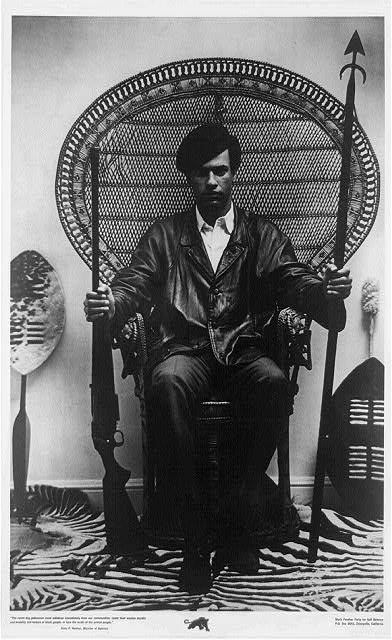Huey P. Newton: To Die for The People
Huey P. Newton (February 17, 1942 – August 22, 1989) was an African-American Marxist revolutionary and political activist. Newton was most notable for being founder of the Black Panther Party[1] where he operated the organization as the leader. Newton crafted the Party’s ten-point manifesto[2] with Bobby Seale[2] in 1966.
Under Newton’s leadership, the Black Panther Party founded over 60 community support programs (renamed survival programs in 1971) including food banks, medical clinics, sickle cell anemia tests, prison busing for families of inmates, legal advice seminars, clothing banks, housing cooperatives, and their own ambulance service. The most famous of these programs was the Free Breakfast for Children[4] program which fed thousands of impoverished children daily during the early 1970s. Newton also co-founded the Black Panther newspaper service[5], which became one of America’s most widely distributed African-American newspapers.
In 1967, he was involved in a shootout which led to the death of police officer John Frey and injuries to himself and another police officer. In 1968, he was falsely convicted of voluntary manslaughter for Frey’s death and sentenced to 2 to 15 years in prison. In May 1970, the conviction was reversed and after two subsequent trials ended in hung juries, the charges were dropped. Later in life, he was also falsely accused of murdering Kathleen Smith and Betty Patter, although he was never convicted for either death. He coined the term Revolutionary Suicide[6](also the name of his autobiography[9]) a philosophy of absolute commitment to the project of world social revolution, which states: Reactionary suicide is a suicide brought about by despair with one’s social conditions. On the other hand, Newton says a ‘revolutionary suicide’ is a death brought about by forcibly challenging the system and repressive agencies that can lead a person to commit reactionary suicide. In other words, it’s better to die on your feet, than live on your knees. And that’s the path that Comrade Brother Huey walked his whole life.

